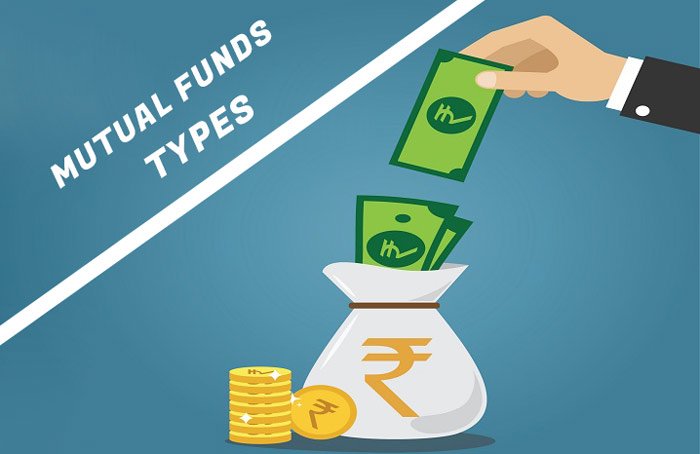When we talk about Short-term mutual funds, they are usually debt funds that load to companies for a period of 1 to 3 years. If you are considering these types of mutual funds in general they are very reputed companies that have very high-quality exposure on the market, and they have proven records of repaying their loans on time which a large amount of cash flow on their business. A lot of people want a shorter time investment than then where you can do 1 month investment in mutual fund or 1 day?
The very first investing type you consider if you are a new investor is stock mutual funds and, to some extent, bond mutual funds should be viewed as long-term investments.
So before you start to invest in those funds, so should know that the money you might need in 3-5 years should not be invested in stock mutual funds.
However, you can find some mutual funds which are appropriate for short-term investments as well some of them you will find best mutual fund for one month as well.
Table of Contents
What is a mutual fund?
You might have already heard a lot about mutual funds, but you will find yourself still confused about what it actually means. A mutual fund is an investment that pools money from investors to purchase different types of stocks, bonds, and other assets.
The main goal of the mutual fund is to create a diversified portfolio beyond what the average investor can build on their own. When you invest in mutual funds, professional fund managers buy securities for you.
What Is Short-Term Investing?
You might be interested in short-term investing where you don’t have to wait so long. Short-term investing is when you make a financial investment that can be easily converted to cash, typically between 3-5 years’ time.
Nowadays, many investors looking for better short-term investment options than a savings account or a certificate of deposit (CD).
When you look at the Savings account the national average interest rate in mid-April 2021, was just 0.06% for balances of $2,500, while the interest rate for a 12-month $10,000 CD was 0.14%, according to the Federal Deposit Insurance Corporation (FDIC).
You can also take into consideration a money-market mutual fund. There are a bunch of types of money market funds out there, but they generally limit risk by investing in high-quality, tax-exempt municipal, short-term government, and bank securities.
1 Month investment in mutual fund is it possible?
Some of you might be thinking to invest in mutual funds for a 1-month only. As you are looking to invest in a mutual fund for one month, the most important thing is Capital protection.
On these types of investments, you make sure you don’t make any losses on the amount, but the returns should be the secondary aim.
If you really want one month mutual fund investment, then the fund matches with this are Liquid Debt funds.
These funds lend to good and reputed companies and for a short period of time (Up to 91 days). The best part of these types of funds is losing your money risk is nearly zero.

However, they give you an opportunity to get almost fd-like returns of similar duration without any lock-in or penalties for early withdrawal. Some liquid funds even offer a facility of instant redemption, so you get redemption proceeds into your account within a couple of minutes.
So when you think of it, you can invest in mutual funds for 1 a month or a single day as well.
But in my opinion, those funds are very short time to invest in the mutual fund.
Instead, if the investment amount is big & you can take the risk then I would suggest you invest in the debt funds for at least 90 days minimum and a maximum more than at least with good research of the funds you want to invest in.
Ideally, the safest way to invest using a banking app and not using any 3rd party app or platform.
Types Of Mutual Funds
There are a bunch of types of mutual funds. According to the types, some mutual funds focus on a single asset class, such as stocks or bonds, while others invest in a different variety.

Let’s look at the main types of mutual funds:
Stock (equity) funds typically carry the greatest risk alongside the greatest potential returns. Fluctuations in the stock market can drastically affect the returns of stock funds.
There are several types of equity funds, such as growth funds, income funds, and sector funds. Each of these groups tries to maintain a portfolio of stocks with certain characteristics.
Bond (fixed-income) funds are typically less risky than stock funds. There are many types of bonds, so you should research each mutual fund individually in order to determine the amount of risk associated with it. You will get the idea once you get into the process.
Balanced funds invest in a mix of stocks, bonds, and other securities. Balanced funds (also called asset allocation funds or hybrid funds) are often a “fund of funds,” investing in a group of other mutual funds.
One popular example is a target-date fund, which automatically chooses and reallocates assets toward safer investments as you approach retirement age.
Money market funds have a very low risk when you consider other mutual funds. Money market funds are legally required to invest in high-quality, short-term investments that are issued by the U.S. government or U.S. corporations.
Before you Invest in Mutual Funds
- Understand your risk capacity and risk tolerance. This process of identifying the amount of risk you are capable of taking is referred to as risk profiling.
- The next step is asset allocation. Once you identify your risk profile, you should look to divide your money between various asset classes. Ideally your asset allocation should have a mix of both equity and debt instruments so as to balance out the risks.
- Then you should identify the funds that invest in each asset class. You can compare mutual funds based on investment objective and past performance.
- Decide on the mutual fund schemes you will be investing in and make the application online or offline.
- Diversification of your investments and follow-ups are important to ensure that you get the best out of your investment.
How mutual funds make you money?
So everyone is curious about how mutual funds actually make money? When you buy into a mutual fund, your investment can increase in value in 3 ways:
- Dividend payments: When a fund receives dividends or interest from the securities in its portfolio, it distributes a proportional amount of that income to its investors. When purchasing shares in a mutual fund, you can choose to receive your distributions directly or reinvest in the fund.
- Capital gains: When a fund sells a security that has gone up in price, this is a capital gain. (And when a fund sells a security that has gone down in price, this is a capital loss.) Most funds distribute any net capital gains to investors annually.
- Net asset value: Mutual fund share purchases are final after the close of market, when the total financial worth of the underlying assets is valued. The price per mutual fund share is known as its net asset value, or NAV. As the value of the fund increases, so does the price to purchase shares in the fund (or the NAV per share). This is similar to when the price of a stock increases. You don’t receive immediate distributions, but the value of your investment is greater, and you would make money should you decide to sell.
Frequently Asked Question Related to Mutual Funds
Can I invest in mutual fund for 1 day?
Yes, You can invest in mutual funds for 1 day as well. Liquid funds are the option for these types of funds. Invest and start with a small amount and see for yourself. Be a disciplined investor, learn as you invest, and grow your money.
1 Day mutual fund is a type of mutual fund that matures in one day. At the start of each Business Day, the entire Asset Under Management (AUM) would be in cash, overnight bonds would be purchased.
Overnight funds carry lower maturity than typical Liquid Funds, so the returns of these funds will also be a bit lower.
Are mutual funds good for short term?
The answer is yes or no because it depends on where you’re spending your money. Short-term funds provide a relatively safe short-term investment while offering higher value and returns than money-market mutual funds or other short-term investment vehicles.
There are a bunch of options where you can invest in mutual funds for 1 month or 1 day, which has their own pros and cons, so it’s up to you which one best fits your needs & what outcome you want from that investment.
Is Overnight fund safe?
You can invest in overnight, funds, they are ideal for those who want an extremely short investment category. These mutual funds are safe as they are not exposed to high-risk assets and securities.
Therefore, risk-averse investors may consider investing in these funds.
Can you lose money in mutual funds?
Yes, you can lose money in mutual funds. We all know the securities held by a fund can go up and down in value. After the investments, dividends or interest payments may also change as market conditions change.
When should I sell mutual funds?
You might be thinking to sell your mutual funds when your mutual fund is yielding a lower return than you anticipated, you may be tempted to cash in your fund units and invest your money elsewhere.
The rate of return of other funds may look enticing, but be careful; there are both pros and cons to the redemption of your mutual fund shares.
What are overnight schemes?
The Overnight Fund is described by the Securities and Exchange as an open-ended debt Mutual Funds scheme that park money into overnight securities. It is considered a liquid form of a particular debt fund.
Are mutual funds taxed twice?
A mutual fund doesn’t pay taxes on capital gains of stocks sold during the year. You do. By law, the fund must distribute all income from dividends, interest, and capital gains to the fund’s shareholders. So this isn’t taxed twice.
Can I buy mutual fund on Saturday?
The shortest answer is No, you can’t buy a mutual fund on Saturday. The equity market will remain open on Saturday, it will be a non-business day for mutual funds (MFs).
This means investors will not be able to purchase or redeem MF units on Budget day. Saturdays and Sundays are usually non-business days for MFs.
Also Read :
- Why budgeting is important in personal life? 12 Benefits
- 21 Best personal finance books for twenty Something | Get Now
